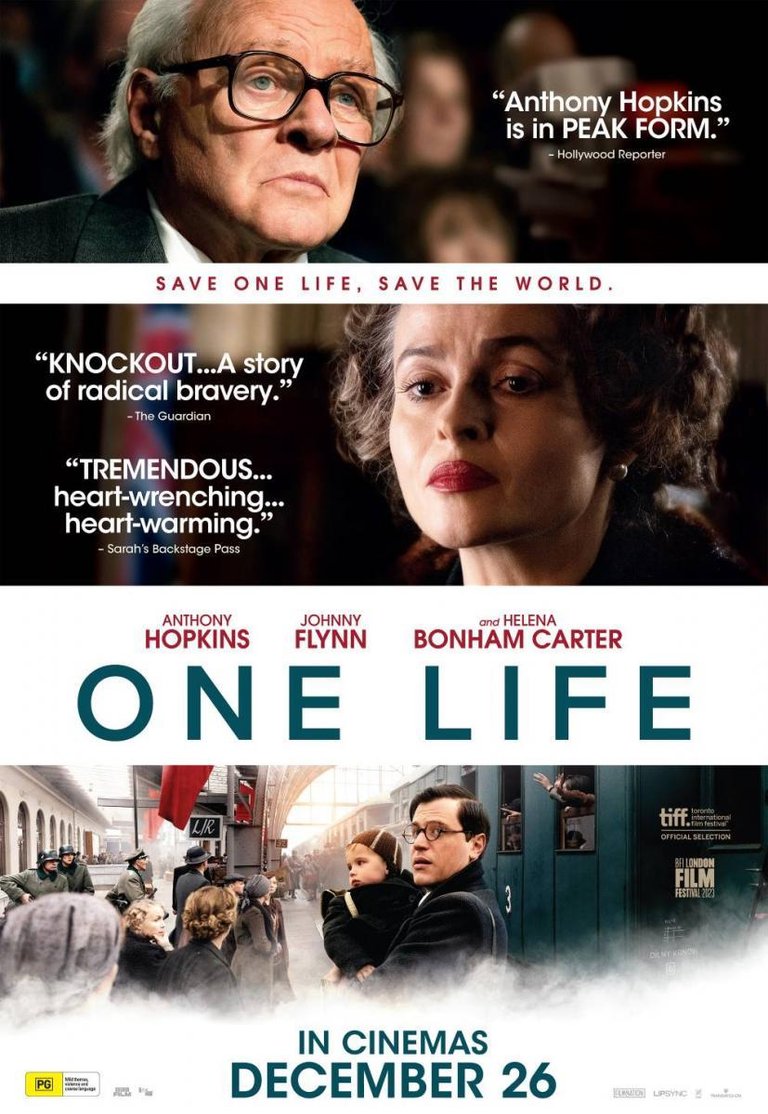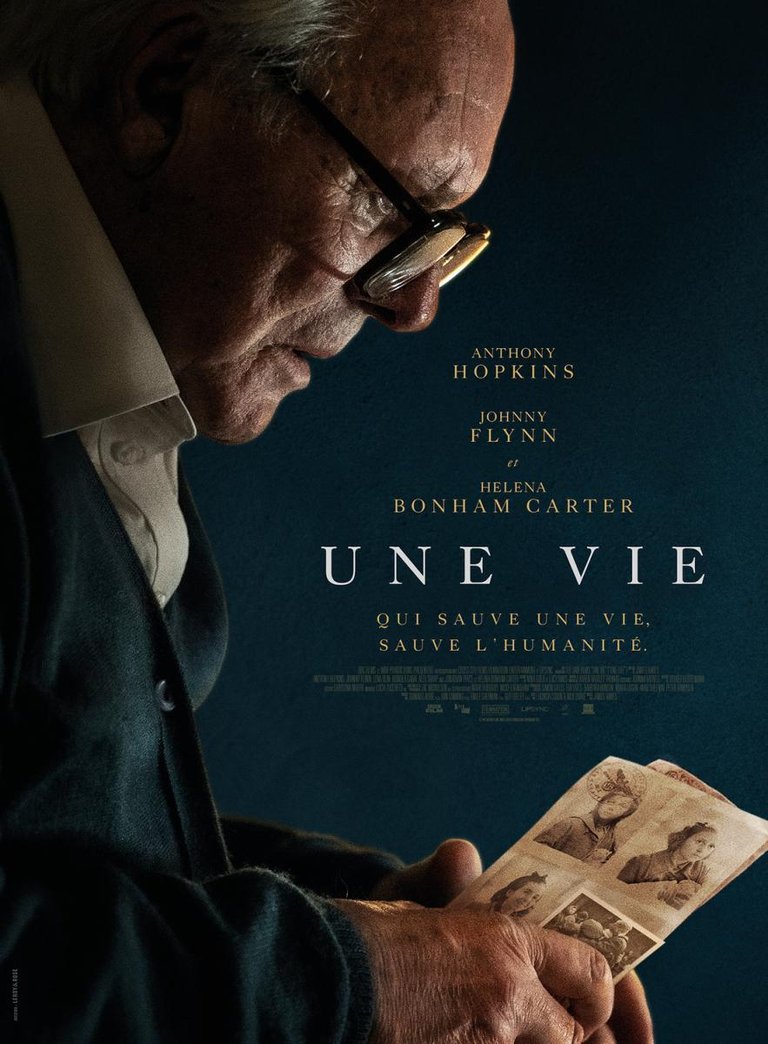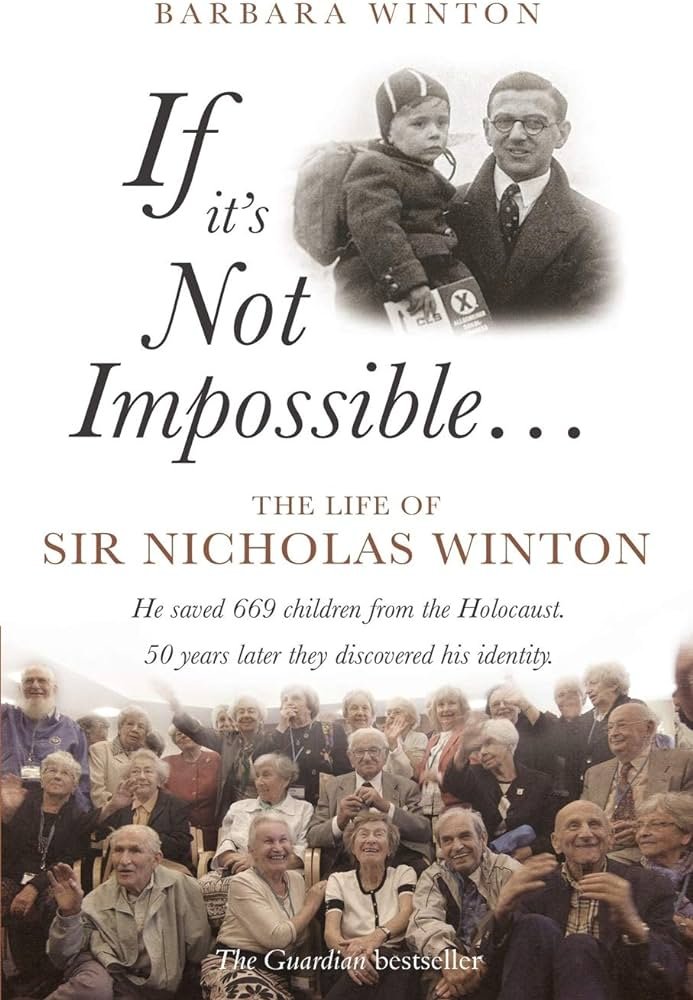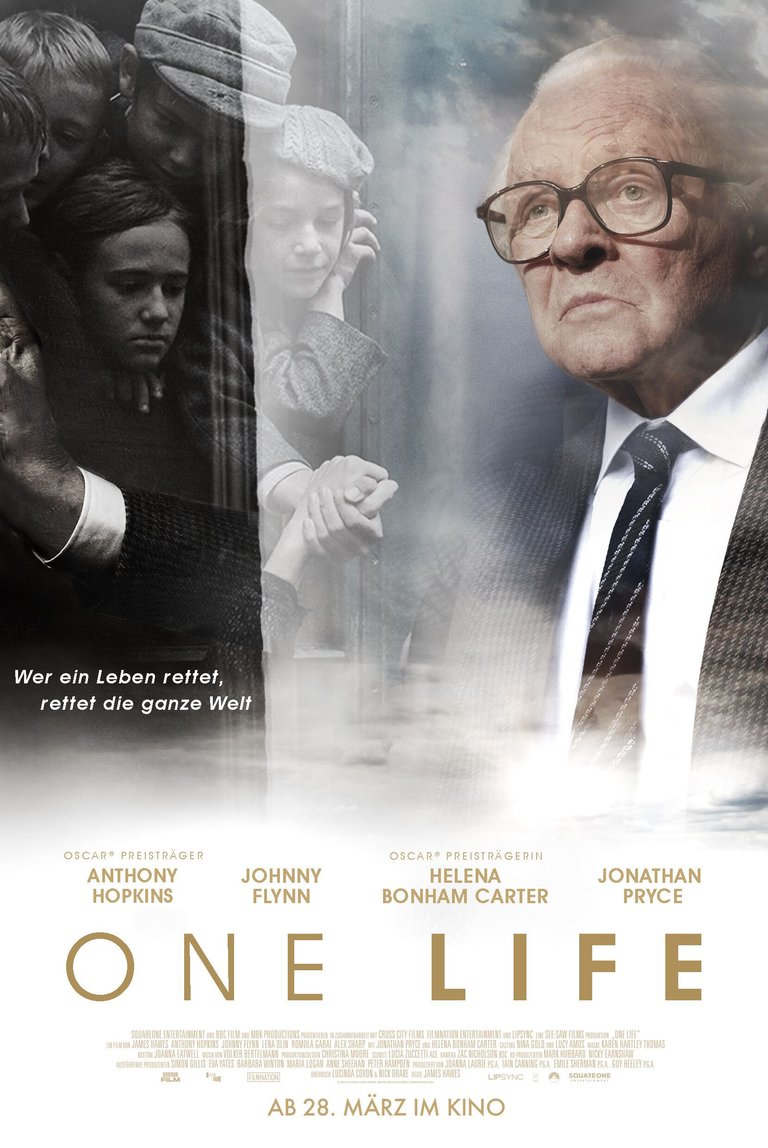One Life (2023): saving the human kind | salvando a la humanidad

Protagonizada por Anthony Hopkins
It's incredible how the World War Two and the Holocaust continue to feed the movie billboards and bookstore windows. Although the conflict ended almost eighty years ago, it continues to be one of the favorite topics of readers and moviegoers today and that's why publishers and production companies continue to rescue lost, little-known or forgotten episodes from that time.
Es increíble cómo la segunda guerra mundial y el holocausto siguen alimentando las carteleras cinematográficas y las vitrinas de las librerías. A pesar de que el conflicto terminó hace casi ochenta años, sigue siendo uno de los temas preferidos de lectores y cinéfilos de la actualidad y por eso las editoriales y las productoras siguen rescatando episodios perdidos, poco conocidos u olvidados de aquella época.
And it is precisely one of those episodes that is told in One Life, directed by James Hawes, written by Lucinda Coxon and Nick Drake (based on the book by Barbara Winton) and starring Anthony Hopkins, along with Johnny Flynn and Helena Bonham Carter. In it, Hopkins plays Nicholas Winton (nicknamed "Nicky"), an older man who lives with his wife amid boxes and folders full of documents related to the different charitable causes he has supported throughout his life. However, the main cause that Nicky supported is related to an episode from his most distant past. In the late 1930s and while he was a stockbroker in London, young Nicky (played by Johnny Flynn) traveled to Prague (Czech Republic) to help thousands of refugees fleeing the Third Reich that was beginning to take over of European lands. It's difficult to give a full context of the situation in a few lines, but basically in 1938 the Allies allowed Hitler to take possession of the Sudetenland (a part of the Czech Republic) thinking that this would prevent 1) Hitler from completely invading the country and 2 ) that there would be a war. We already know how that all ended. The fact is that after that agreement and before the invasion of Poland (an event that marked the beginning of World War Two) the Prague office of the British Committee for Refugees from Czechoslovakia (BCRC) helped many Czech citizens to obtain visas to flee to England.
Y precisamente es uno de esos episodios el que se cuenta en One Life, dirigida por James Hawes, escrita por Lucinda Coxon y Nick Drake (basados en el libro de Barbara Winton) y protagonizada por Anthony Hopkins, junto a Johnny Flynn y Helena Bonham Carter. En ella, Hopkins encarna a Nicholas Winton (apodado "Nicky"), un hombre mayor que vive junto a su esposa en medio de cajas y carpetas llenas de documentos relacionados con las diferentes causas benéficas que ha apoyado durante toda su vida. Sin embargo, la causa principal que Nicky apoyó tiene relación con un episodio de su pasado más remoto. A finales de los años treinta del siglo pasado y mientras era corredor de bolsa en Londres, el joven Nicky (interpretado por Johnny Flynn) viajó a Praga (República Checa) para ayudar a miles de refugiados que huían del Tercer Reich que comenzaba a tomar posesión de tierras europeas. Es difícil dar un contexto pleno de la situación en pocas líneas, pero básicamente en 1938 los aliados le permitieron a Hitler tomar posesión de los Sudetes (una parte de la República Checa) pensando que eso impediría que 1) Hitler invadiera el país completamente y 2) que hubiera una guerra. Ya sabemos cómo terminó todo eso. El hecho es que después de ese acuerdo y antes de la invasión de Polonia (acontecimiento que marcó el inicio de la segunda guerra mundial) la oficina de Praga del Comité Británico para los Refugiados de Checoslovaquia (BCRC) ayudó a muchos ciudadanos checos a conseguir visas para huir a Inglaterra.

However, the office's mission was focused on helping politically persecuted people at imminent risk of being captured and when Nicky arrives in Prague to lend a hand, he discovers a huge number of children living in deplorable conditions and a health risk. He immediately begins a personal crusade - in which he will have the support of many people, including his mother (Helena Bonham Carter) - that is as daring as it is difficult: rescue thousands of children and send them to England, to temporary homes until they can return to their country or reunite with their families.
Sin embargo, la misión de la oficina iba enfocada a ayudar a perseguidos políticos en riesgo inminente de ser capturados y cuando Nicky llega a Praga a dar una mano descubre una cantidad enorme de niños que viven en condiciones deplorables y de riesgo sanitario. Inmediatamente inicia una cruzada personal - en la que contará con el apoyo de muchas personas, incluida su madre (Helena Bonham Carter) - que es tan atrevida como difícil: rescatar a miles de niños y enviarlos a Inglaterra, a hogares temporales hasta que puedan regresar a su país o reunirse con sus familias.
There are many obstacles that Nicky must overcome. In order to take children by train to England they must cross at least two countries and one of those is precisely Germany. The war has not started, you have to follow the protocol and that means having the documentation in order. Each child then needs a passport and a visa that must be granted by the British government, which at the moment is unaware of the reality of the refugee camps and hopes that there will be no war, so at the beginning they are not very collaborative. Then there is the issue of the money involved in such an operation. There are many children, many train tickets, stamps, documents, etc. But the most difficult thing is to gain the trust of the institutions that house these children and especially their parents. Why would a young Englishman travel to Prague just to help Czech children, Jewish and non-Jewish, to emigrate to England? how to trust? How do you know that he's not a spy or a traitor? And once all this is over, how can you trust that everything will turn out well? It's a combination of effort, resources and luck, which had to be carried out in the rush of uncertainty because the Nazis could invade Prague at any time. And at the center of all this tension, of the coordination of all those efforts and of the titanic task of saving the lives of these children, was Nicholas Winton.
Son muchos los obstáculos que Nicky debe superar. Para poder llevar a los niños en tren hasta Inglaterra deben cruzar al menos dos países y uno de esos es precisamente Alemania. La guerra no ha empezado, hay que seguir el protocolo y eso implica tener la documentación en regla. Cada niño necesita entonces un pasaporte y una vis que debe ser otorgada por el gobierno británico que para el momento desconoce la realidad de los campos de refugiados y que espera que no haya guerra, así que al inicio no son muy colaborativos. Luego está el tema del dinero que implica semejante operación. Son muchos niños, muchos boletos de tren, timbres, documentos, etc. Pero lo más difícil es ganarse la confianza de las instituciones que albergan a estos niños y sobre todo de sus padres, ¿por qué un joven inglés viajaría a Praga sólo para ayudar a niños checos, judíos y no judíos, a emigrar a Inglaterra? ¿cómo confiar? ¿cómo saber que no es un espía o un traidor? Y una vez superado todo esto, ¿cómo confiar en que todo saldrá bien? Se trata de una combinación de esfuerzo, recursos y suerte, que debía llevarse a cabo con las prisas de la incertidumbre porque los nazis podías invadir Praga en cualquier momento. Y en el centro de toda esta tensión, de la coordinación de todos esos esfuerzos y de la titánica tarea de salvar la vida de estos niños, estaba Nicholas Winton.
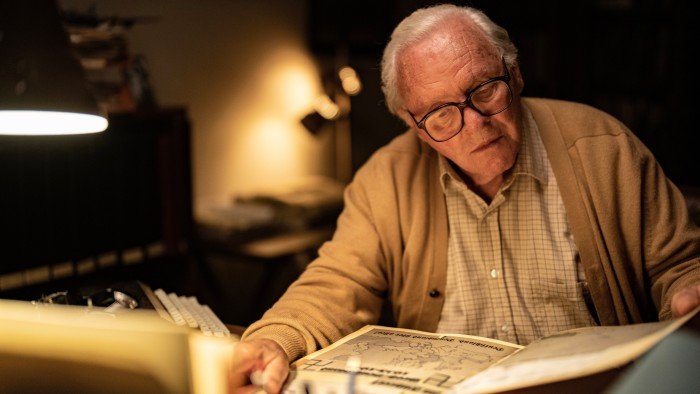
In technical terms and cinematographic aspects, the film is one more. That is to say, it's one of many dramatic films that have been made about the Holocaust. It has the same tone, almost the same narrative that alternates the present with the past, melancholic string music for key moments, melodramatic scenes and a predictable and moving true story at the core of the film. Hopkins' performance is wonderfully moving, but the direction, the script, the soundtrack, don't stand out. They fulfill their function quite well, yes, and that is appreciated.
En términos técnicos y aspectos cinematográficos, la película es una más. Es decir, es una de tantas películas dramáticas que se han hecho sobre el holocausto. Tiene el mismo tinte, casi la misma narrativa que alterna el presente con el pasado, música melancólica de cuerdas para momentos claves, escenas melodramáticas y una historia real, predecible y conmovedora, en el núcleo de la película. La actuación de Hopkins es maravilosamente conmovedora, pero la dirección, el guión, el soundtrack, no sobresalen. Cumplen su función bastante bien, eso sí, y se agradece.
But what it does not achieve through form, it achieves with substance, specifically with the emotional background of the story and the characters. In more than one scene the viewer is sitting in his seat in the cinema believing that it has started to rain because the images become blurry. Lump in the chest, in the throat, sobs and silent tears begin to fall because one cannot believe that things like this have happened. One Life shows the most terrifying thing about the human soul - hatred and that ability to persecute and kill others - but also the most beautiful thing - empathy, solidarity, the love that leads a person to travel to another country to help thousands of strangers who are in danger - and between one extreme and another we experience loneliness, redemption, tenacity, danger, tension, sadness, guilt, defeat, joy, gratitude and many other things. What this man did was really beautiful, how many of us would be able to do something like that? Very few. Perhaps none. And perhaps there will be those who say that the time of heroes has passed, that the darkest episodes of our history are already behind us, but it's not true. War, orphans, refugees, immigrants, are topics as relevant today as then. It's disheartening to see how little we have learned, as a species, from our experience. Perhaps the example of Nicholas Winton and this film will be of some use to us, have any of you seen it yet? I read you in the comments.
Pero lo que no consigue a través de la forma, lo consigue con el fondo, concretamente con el trasfondo emocional de la historia y de los personajes. En más de una escena el espectador se encuentra sentado en su butaca en el cine creyendo que ha comenzado a llover porque las imágenes se le hacen borrosas. Nudo en el pecho, en la garganta, sollozos y lágimas silenciosas comienzan a caer porque no puede creerse que cosas así hayan pasado. One Life muestra lo más aterrador del alma humana - el odio y esa capacidad para perseguir y asesinar a sus semejantes - pero también lo más hermoso - la empatía, la solidaridad, el amor que lleva a una persona a viajar a otro país para ayudar a miles de desconocidos que corren peligro - y entre un extremo y otro experimentamos soledad, redención, tenacidad, peligro, tensión, tristeza, culpa, derrota, alegría, agradecimiento y muchas cosas más. Lo que hizo este hombre fue realmente hermoso, ¿cuántos de nosotros seríamos capaces de hacer algo así? Muy pocos. Acaso ninguno. Y quizás habrá quien diga que el tiempo de los héroes ha pasado, que los episodios más negros de nuestra historia ya han quedado atrás, pero no es cierto. Guerra, huérfanos, refugiados, inmigrantes, son temas tan vigentes hoy como entonces. Es descorazonador ver lo poco que hemos aprendido, como especie, de nuestra experiencia. Quizás el ejemplo de Nicholas Winton y esta película nos sirvan de algo, ¿alguno de ustedes ya la vio? Los leo en los comentarios.
Reseñado por @cristiancaicedo
Other posts that may interest you | Otros posts que pueden interesarte:
 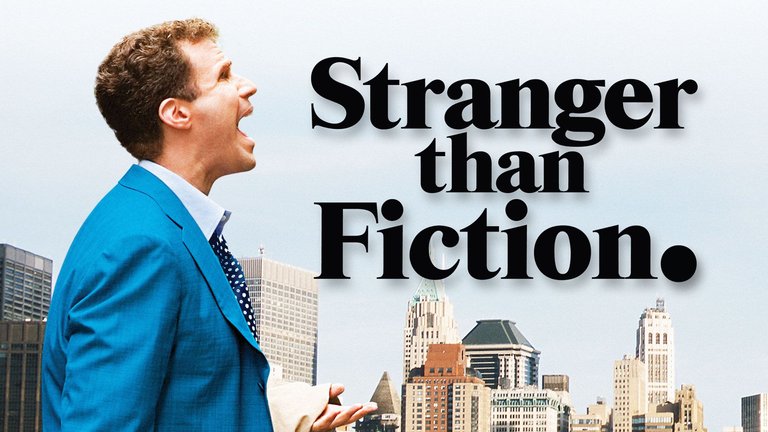 |
|---|
